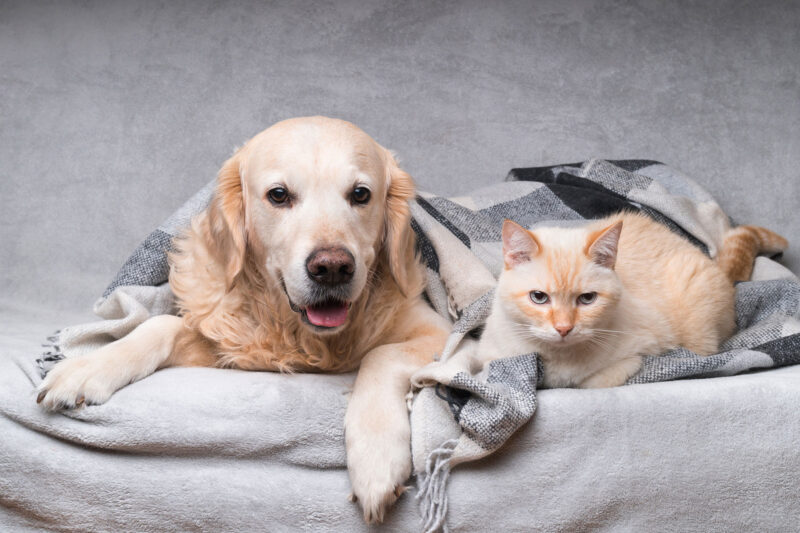How to Care for a Senior Pet: Tips for Keeping Them Healthy and Happy
November 10, 2024

Caring for a senior pet can be a rewarding, albeit challenging, experience. As pets age, they experience physical and emotional changes that require special attention and care. Just like us, aging pets may face health issues, decreased mobility, and shifts in behavior. Understanding how to cater to their unique needs is essential for prolonging their happiness and quality of life.
1. Understanding the Aging Process in Pets
As pets age, their bodies start to reflect the passing of time in ways that can differ greatly among species and breeds. It is generally accepted that pets are considered senior when they are roughly seven years old, although this can vary:
- Dogs: Smaller breeds age more slowly and may be considered senior around 10-12 years, whereas larger breeds may be classified as senior by six or seven years.
- Cats: Cats are typically considered seniors around the age of 10-12 years, but they can live well into their late teens or early twenties with proper care.
It’s essential to be aware of the physical changes your pet may undergo. This may include a decrease in energy, changes in weight, dental issues, and more frequent health problems. Watching for signs of discomfort or changes in behavior can help you address health issues before they become serious.
2. Regular Veterinary Check-ups
Regular vet visits become increasingly important as your pet ages. Annual or bi-annual check-ups can help identify health issues early, which is crucial for effective treatment. During these visits, your veterinarian might perform the following:
- Comprehensive Health Screenings: Blood tests can check for organ function and identify problems such as diabetes or kidney disease.
- Dental Exams: Proper dental care is essential. Dental disease can lead to other health issues, so regular dental check-ups are vital.
- Vaccinations: Ensure that your senior pet is up-to-date on vaccinations to prevent common diseases, which can pose a greater risk to older pets.
Always discuss any concerning changes you observe in your pet’s habits or health during these check-ups so that preventative or corrective actions can be taken.
3. Nutrition for Senior Pets
Aging pets often require different nutritional needs compared to younger animals. Here are some important nutritional considerations:
- Senior-Specific Diets: Many pet food brands offer diets specifically formulated for senior pets. These foods often contain fewer calories to prevent weight gain and include joint-supporting ingredients like glucosamine and omega-3 fatty acids.
- Hydration: Always ensure fresh water is available. Aging pets can suffer from dehydration more easily, so adequate hydration is crucial for their health.
- Weight Management: Obesity in senior pets can exacerbate health issues. Maintain an appropriate weight to enhance mobility and overall well-being.
Consult with your veterinarian to determine the best diet plan tailored to your pet’s specific health needs.
4. Exercise and Mental Stimulation
While the energy levels of senior pets may decrease, exercise and mental stimulation remain essential for their health:
- Adapted Exercise Routines: Shorter, more frequent walks can encourage your senior dog to stay active without causing undue fatigue. For cats, promote play with interactive toys to keep them engaged.
- Mental Challenges: Engage your pet’s mind with puzzle toys, training sessions, and new games. This is critical for preventing cognitive decline and boredom.
Don’t forget to monitor your pet closely during physical activities and adjust the intensity as necessary. Also, consider special gear such as joint support braces if mobility is an issue.
5. Comfortable Living Environment
As pets age, their comfort becomes paramount. Here are some ways to enhance your pet’s living space:
- Orthopedic Beds: Invest in quality bedding that supports their joints and offers ample cushioning. Many seniors experience arthritis or joint pain, so a comfortable sleeping arrangement is essential.
- Restrict Stairs and Slippery Floors: Offer ramps or steps if your pet struggles to leap onto furniture or navigate stairs. Use rugs or other traction solutions to prevent slips on slippery surfaces.
- Quiet Areas: Create a peaceful spot where your pet can retreat if they feel overwhelmed or tired. This is especially crucial for larger households or busy environments.
Ensuring a comfortable living environment can greatly improve the quality of life for your senior pet.
6. Grooming and Dental Care
As pets grow older, grooming becomes increasingly important. Maintain a regular grooming routine:
- Regular Brushing: Regularly grooming your pet helps manage shedding and skin health. Senior pets may need more brushing to remove loose hair and prevent matting.
- Nail Trimming: Long nails can cause discomfort and lead to mobility issues. Ensure you are trimming their nails regularly to prevent this issue.
- Dental Care: Dental health is often overlooked but crucial for senior pets. Regular brushing of your pet’s teeth and dental check-ups can prevent gum disease and other serious health issues.
Maintaining good grooming habits contributes positively to your senior pet’s overall well-being.
7. Noticing Behavioral Changes
As your pet ages, you may notice changes in their behavior. They may become less social, more anxious, or reclusive. It’s essential to acknowledge these changes:
- Monitor Mood and Habits: Pay attention to changes in their eating habits, social interactions, and sleep patterns. Changes in behavior may signal health concerns that require veterinary attention.
- Provide Comfort & Reassurance: As pets age, they might need extra comfort or affection. Spending more time with them can help soothe their anxiety and strengthen your bond.
- Consider Supplementing with Natural Aids: Natural supplements, like calming herbal remedies, can assist with anxiety or agitation. Discuss options with your veterinarian to ensure they are safe for your pet.
Being sensitive to your senior pet’s emotional changes can enhance their quality of life.
8. The Importance of Patience
Finally, as your pet ages, patience is key. Changes may be gradual, but your understanding and support can make a big difference:
- Be Adaptable: Modify your routines based on your pet’s evolving needs. An exercise session may reduce in length, or feeding times may require adjustments to accommodate dietary needs.
- Show Extra Love: Your senior pet will appreciate your love as they navigate their later years. More hugs, cuddles, or low-key playtime can boost their spirits and yours.
Ultimately, caring for a senior pet is about adjusting to their needs and offering them the best life possible in their golden years.
Conclusion
Caring for your senior pet can require extra effort, but the love and companionship they provide are invaluable. By understanding their specific needs—from medical care to nutrition, exercise, and emotional support—you can ensure that they live a happy and fulfilled life. Remember, their golden years should be filled with comfort, care, and plenty of love.
With patience and the appropriate adjustments, you can make the later years of your pet’s life just as wonderful as their younger days. Enjoy your time together and cherish each moment; they deserve it all!







